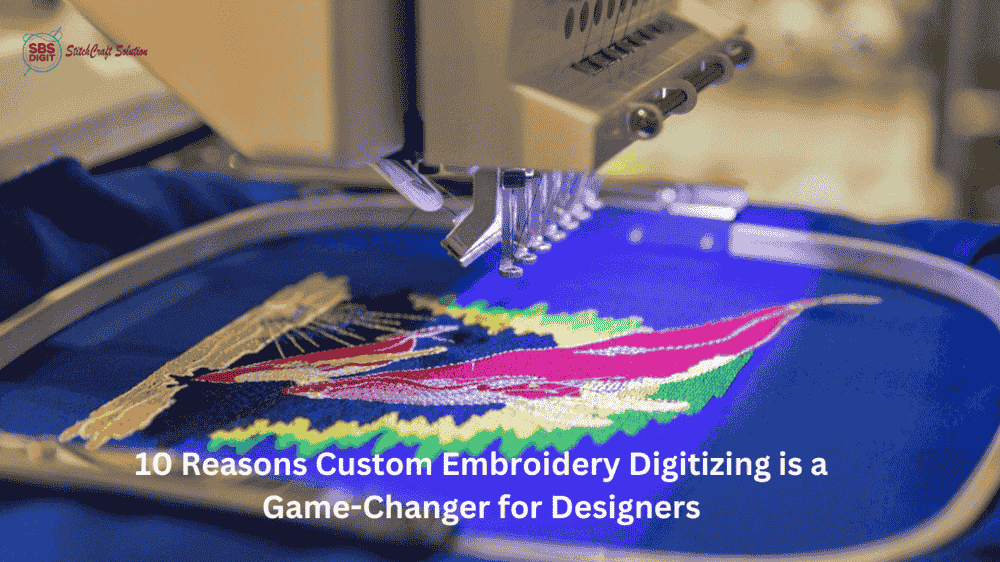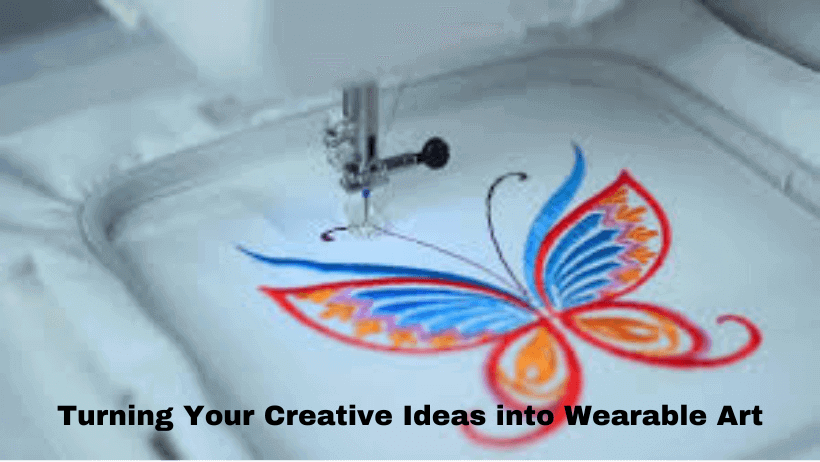In today’s world, sustainability is not just a buzzword—it’s a lifestyle choice that many industries are embracing, and embroidery is no exception. As businesses and creators continue to seek eco-friendly alternatives, it’s essential to look at how the embroidery digitizing industry can contribute to a more sustainable future. By incorporating eco-friendly practices and leveraging new technologies, embroidery digitizing services are stepping up to the challenge, providing custom solutions that are both creative and responsible.
Let’s explore how custom embroidery digitizing services are adopting sustainable practices and transforming the way we create everything from custom hat patches to custom PVC patches.
The Rise of Eco-Friendly Embroidery Digitizing Services
Custom embroidery digitizing services are at the forefront of this eco-conscious movement. Traditionally, embroidery involves using various materials and processes that could be harmful to the environment. However, with the increasing demand for sustainable products, embroidery services are evolving to minimize their environmental footprint.
One way this is happening is through the use of organic threads and eco-friendly fabrics. For instance, instead of traditional polyester threads, many businesses are now opting for organic cotton, bamboo, or recycled polyester threads. These alternatives are not only better for the environment but also offer unique textures and finishes that are in demand among customers looking for high-quality, eco-friendly products.
Additionally, custom embroidery digitizing services are using cutting-edge software that minimizes waste during the embroidery process. By optimizing designs and thread usage, these services reduce the number of thread breaks and re-threads, thus limiting material waste.
Custom Hat Patches: A Sustainable Fashion Trend
Custom patches have long been a favorite for personalizing apparel and accessories. Among these, custom hat patches are extremely popular, allowing people to showcase their creativity and make a fashion statement. Now, eco-conscious buyers can enjoy these custom patches without guilt.
The embroidery process for custom hat patches can be made more sustainable by choosing eco-friendly threads and fabrics. Moreover, these patches are often made from recycled materials, reducing the need for new raw resources. By selecting sustainable options like organic cotton or recycled polyester, you’re not only getting a unique design for your hats but also making a positive impact on the planet.
The Benefits of Custom PVC Patches
In recent years, custom PVC patches have become a favorite alternative to traditional fabric patches. PVC (Polyvinyl Chloride) is a durable, long-lasting material that offers unique, vibrant designs. While PVC patches are typically known for their bold and detailed designs, they can also be made more sustainable.
Sustainable PVC patches are made using eco-friendly, recyclable materials. While PVC itself is not always considered the most sustainable material, advancements in production methods have made it possible to produce high-quality, eco-conscious patches. By choosing a reputable digitizing service that uses recycled PVC or non-toxic materials, you can support sustainable fashion while enjoying custom-designed patches that stand the test of time.
The Role of Vector Artwork in Sustainable Design
A key component in the world of embroidery digitizing is vector artwork. This type of artwork is used to create precise, scalable designs that are ideal for embroidery. The beauty of vector artwork lies in its ability to maintain high-quality resolution regardless of size, which leads to less material waste.
Vector art is also highly efficient in the embroidery process. The precise lines and curves in vector artwork help reduce the amount of thread required, which leads to lower material consumption. This is particularly important when working with eco-friendly materials, as it ensures that every stitch counts.
Why Eco-Friendly Embroidery Solutions Matter
Incorporating sustainability into embroidery digitizing services isn’t just a trend—it’s a necessary step toward a greener, more responsible future. By embracing sustainable practices, businesses that offer custom embroidery digitizing services can help their clients reduce waste and make more environmentally conscious choices.
Here are some of the key reasons why these eco-friendly solutions matter:
- Reduced Environmental Impact: By using organic threads and fabrics, reducing waste, and employing sustainable production methods, businesses are playing their part in reducing their environmental footprint.
- Appeal to Eco-Conscious Consumers: Today’s consumers are more aware of their purchasing decisions than ever before. Offering eco-friendly custom hat patches and custom PVC patches allows businesses to cater to this growing market.
- Innovation in Design: Sustainability does not have to mean sacrificing creativity. Sustainable materials can be just as versatile and creative as traditional options, allowing for innovative and high-quality designs.
- Ethical Responsibility: By embracing sustainable practices, embroidery digitizing services help contribute to the broader movement towards more ethical and responsible production in the fashion and accessory industries.
Conclusion
The demand for custom embroidery digitizing services that offer sustainable options is rising. Whether you are looking to create custom hat patches or custom PVC patches, the availability of eco-friendly materials and production methods ensures that your designs can reflect your values. By choosing these solutions, you are not just adding beautiful, personalized designs to your wardrobe or accessories—you are also supporting a more sustainable and responsible future for the embroidery industry.




Aρpreciate this post. Let me try it out.